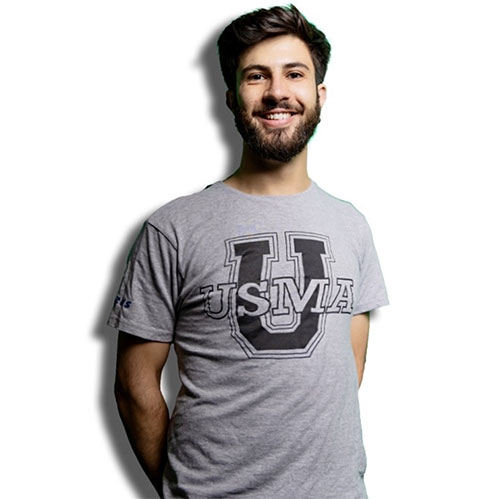Array
(
[field_link_esterno_news] => Array
(
[#theme] => field
[#weight] => -1
[#title] => Link esterno news
[#access] => 1
[#label_display] => above
[#view_mode] => teaser
[#language] => und
[#field_name] => field_link_esterno_news
[#field_type] => text_long
[#field_translatable] => 0
[#entity_type] => node
[#bundle] => box_lancio_news
[#object] => stdClass Object
(
[vid] => 513889
[uid] => 2032
[title] => Identificato possibile nuovo bersaglio terapeutico per la cura del carcinoma del colon-retto
[log] =>
[status] => 1
[comment] => 0
[promote] => 1
[sticky] => 0
[nid] => 126553
[type] => box_lancio_news
[language] => it
[created] => 1766138146
[changed] => 1766138146
[tnid] => 0
[translate] => 0
[revision_timestamp] => 1766138146
[revision_uid] => 2032
[body] => Array
(
[und] => Array
(
[0] => Array
(
[value] =>
Un gruppo di ricerca del Dipartimento di Biologia dell’Università di Padova, coordinato dalla professoressa Gaia Codolo, ha identificato un possibile nuovo bersaglio terapeutico per la cura del carcinoma del colon-retto. Si tratta del recettore immunitario CD300e, espresso da particolari cellule del sistema immunitario presenti nel microambiente tumorale. La ricerca è stata sostenuta dalla Fondazione AIRC per la ricerca sul cancro.
I risultati, pubblicati sul Journal for ImmunoTherapy of Cancer, mostrano che CD300e contribuisce a indirizzare i macrofagi, cellule dell’immunità innata, verso uno stato che favorisce la crescita tumorale e riduce l’efficacia della risposta immunitaria. Inibire o silenziare questo recettore potrebbe quindi riattivare le difese immunitarie e potenziare l’efficacia delle immunoterapie oggi disponibili.
«Abbiamo scoperto che CD300e è fortemente indotto da segnali prodotti dal tumore stesso, che riprogrammano i macrofagi rendendoli meno capaci di sostenere la risposta delle cellule T», commenta la professoressa Gaia Codolo, coordinatrice della ricerca. Le cellule T sono un’altra componente fondamentale del sistema immunitario e sono implicate, tra le altre cose, nel riconoscimento e nell’eliminazione delle cellule tumorali. «L’identificazione di CD300e come uno dei regolatori chiave di questo processo apre nuove prospettive per lo sviluppo di strategie terapeutiche innovative», riprende Codolo.
Le prime autrici dell’articolo, Annica Barizza e Stefania Vassallo, nonché ricercatrici del Dipartimento di Biologia dell’Ateneo patavino, hanno guidato le parti sperimentali più complesse del progetto.
«È stato un lavoro impegnativo, iniziato letteralmente da zero – spiega Annica Barizza –. Abbiamo dovuto costruire passo dopo passo l’intero sistema sperimentale che ci ha permesso di identificare il ruolo di CD300e».
«Siamo rimaste colpite – aggiunge Stefania Vassallo – nell’osservare che, interferendo con questo recettore, si potesse modificare profondamente il comportamento delle cellule immunitarie. Questo ci ha indicato subito che stavamo osservando qualcosa di molto rilevante».
«La collaborazione con clinici, bioinformatici e ricercatori di altre discipline è stata fondamentale – conclude Codolo –. La complessità dei tumori richiede approcci integrati, capaci di mettere insieme dati immunologici, molecolari e omici».
I ricercatori sottolineano che CD300e potrebbe rappresentare un bersaglio promettente per sviluppare trattamenti in grado di riprogrammare i macrofagi tumorali e rendere il microambiente più favorevole a una risposta immunitaria efficace. L’obiettivo ultimo è comprendere se un trattamento mirato a CD300e possa essere integrato con le immunoterapie attualmente in uso, migliorandone l’efficacia soprattutto nei pazienti che oggi non rispondono a queste cure.
Lo studio ha visto la collaborazione del Dipartimento di Scienze Cardio-Toraco-Vascolari e Sanità Pubblica dell’Università di Padova, l’Istituto Oncologico Veneto (IOV) di Padova, il Dipartimento di Medicina Molecolare della Sapienza Università di Roma e il Dipartimento di Medicina Molecolare e Traslazionale dell’Università di Brescia.
[summary] =>
[format] => 2
[safe_value] =>
Un gruppo di ricerca del Dipartimento di Biologia dell’Università di Padova, coordinato dalla professoressa Gaia Codolo, ha identificato un possibile nuovo bersaglio terapeutico per la cura del carcinoma del colon-retto. Si tratta del recettore immunitario CD300e, espresso da particolari cellule del sistema immunitario presenti nel microambiente tumorale. La ricerca è stata sostenuta dalla Fondazione AIRC per la ricerca sul cancro.
I risultati, pubblicati sul Journal for ImmunoTherapy of Cancer, mostrano che CD300e contribuisce a indirizzare i macrofagi, cellule dell’immunità innata, verso uno stato che favorisce la crescita tumorale e riduce l’efficacia della risposta immunitaria. Inibire o silenziare questo recettore potrebbe quindi riattivare le difese immunitarie e potenziare l’efficacia delle immunoterapie oggi disponibili.
«Abbiamo scoperto che CD300e è fortemente indotto da segnali prodotti dal tumore stesso, che riprogrammano i macrofagi rendendoli meno capaci di sostenere la risposta delle cellule T», commenta la professoressa Gaia Codolo, coordinatrice della ricerca. Le cellule T sono un’altra componente fondamentale del sistema immunitario e sono implicate, tra le altre cose, nel riconoscimento e nell’eliminazione delle cellule tumorali. «L’identificazione di CD300e come uno dei regolatori chiave di questo processo apre nuove prospettive per lo sviluppo di strategie terapeutiche innovative», riprende Codolo.
Le prime autrici dell’articolo, Annica Barizza e Stefania Vassallo, nonché ricercatrici del Dipartimento di Biologia dell’Ateneo patavino, hanno guidato le parti sperimentali più complesse del progetto.
«È stato un lavoro impegnativo, iniziato letteralmente da zero – spiega Annica Barizza –. Abbiamo dovuto costruire passo dopo passo l’intero sistema sperimentale che ci ha permesso di identificare il ruolo di CD300e».
«Siamo rimaste colpite – aggiunge Stefania Vassallo – nell’osservare che, interferendo con questo recettore, si potesse modificare profondamente il comportamento delle cellule immunitarie. Questo ci ha indicato subito che stavamo osservando qualcosa di molto rilevante».
«La collaborazione con clinici, bioinformatici e ricercatori di altre discipline è stata fondamentale – conclude Codolo –. La complessità dei tumori richiede approcci integrati, capaci di mettere insieme dati immunologici, molecolari e omici».
I ricercatori sottolineano che CD300e potrebbe rappresentare un bersaglio promettente per sviluppare trattamenti in grado di riprogrammare i macrofagi tumorali e rendere il microambiente più favorevole a una risposta immunitaria efficace. L’obiettivo ultimo è comprendere se un trattamento mirato a CD300e possa essere integrato con le immunoterapie attualmente in uso, migliorandone l’efficacia soprattutto nei pazienti che oggi non rispondono a queste cure.
Lo studio ha visto la collaborazione del Dipartimento di Scienze Cardio-Toraco-Vascolari e Sanità Pubblica dell’Università di Padova, l’Istituto Oncologico Veneto (IOV) di Padova, il Dipartimento di Medicina Molecolare della Sapienza Università di Roma e il Dipartimento di Medicina Molecolare e Traslazionale dell’Università di Brescia.
[safe_summary] =>
)
)
)
[field_date_box_lancio_news] => Array
(
[und] => Array
(
[0] => Array
(
[value] => 2025-12-19T00:00:00
[timezone] => Europe/Paris
[timezone_db] => Europe/Paris
[date_type] => date
)
)
)
[field_etichetta_box_lancio_news] => Array
(
)
[field_img_box_lancio_news] => Array
(
[und] => Array
(
[0] => Array
(
[fid] => 144961
[uid] => 2032
[filename] => n_cancro_fucsia.jpg
[uri] => public://n_cancro_fucsia_2.jpg
[filemime] => image/jpeg
[filesize] => 93242
[status] => 1
[timestamp] => 1766138146
[type] => image
[field_file_image_alt_text] => Array
(
)
[field_file_image_title_text] => Array
(
)
[field_folder] => Array
(
[und] => Array
(
[0] => Array
(
[tid] => 2048
)
)
)
[metadata] => Array
(
[height] => 630
[width] => 1200
)
[height] => 630
[width] => 1200
[alt] => cancer
[title] =>
)
)
)
[field_link_alla_news] => Array
(
)
[field_link_esterno_news] => Array
(
[und] => Array
(
[0] => Array
(
[value] =>
[format] =>
[safe_value] =>
)
)
)
[field_pagina_associata] => Array
(
)
[field_link_etichetta] => Array
(
)
[field_abstract_news] => Array
(
[und] => Array
(
[0] => Array
(
[value] => Un gruppo di ricerca del Dipartimento di Biologia dell’Università di Padova, coordinato dalla professoressa Gaia Codolo, ha identificato un possibile nuovo bersaglio terapeutico per la cura del carcinoma del colon-retto
[format] =>
[safe_value] => Un gruppo di ricerca del Dipartimento di Biologia dell’Università di Padova, coordinato dalla professoressa Gaia Codolo, ha identificato un possibile nuovo bersaglio terapeutico per la cura del carcinoma del colon-retto
)
)
)
[field_allegato_news] => Array
(
)
[field_categorie_news] => Array
(
[und] => Array
(
[0] => Array
(
[tid] => 2264
)
[1] => Array
(
[tid] => 2266
)
[2] => Array
(
[tid] => 2267
)
[3] => Array
(
[tid] => 2462
)
)
)
[field_pub_date] => Array
(
[und] => Array
(
[0] => Array
(
[value] => 2025-12-19T00:00:00
[value2] => 2026-12-19T00:00:00
[timezone] => Europe/Paris
[timezone_db] => Europe/Paris
[date_type] => date
)
)
)
[field_layout_news] => Array
(
[und] => Array
(
[0] => Array
(
[value] => single
)
)
)
[field_testo_opzionale_news] => Array
(
)
[field_url_en_page] => Array
(
)
[field_url_en_page_label] => Array
(
[und] => Array
(
[0] => Array
(
[value] => English version
[format] =>
[safe_value] => English version
)
)
)
[path] => Array
(
[pathauto] => 1
)
[name] => francesca.forzan
[picture] => 0
[data] => b:0;
[num_revisions] => 1
[current_revision_id] => 513889
[is_current] => 1
[is_pending] =>
[revision_moderation] =>
[entity_view_prepared] => 1
)
[#items] => Array
(
[0] => Array
(
[value] =>
[format] =>
[safe_value] =>
)
)
[#formatter] => text_default
[0] => Array
(
[#markup] =>
)
)
[body] => Array
(
[#theme] => field
[#weight] => 0
[#title] => Body
[#access] => 1
[#label_display] => hidden
[#view_mode] => teaser
[#language] => und
[#field_name] => body
[#field_type] => text_with_summary
[#field_translatable] => 0
[#entity_type] => node
[#bundle] => box_lancio_news
[#object] => stdClass Object
(
[vid] => 513889
[uid] => 2032
[title] => Identificato possibile nuovo bersaglio terapeutico per la cura del carcinoma del colon-retto
[log] =>
[status] => 1
[comment] => 0
[promote] => 1
[sticky] => 0
[nid] => 126553
[type] => box_lancio_news
[language] => it
[created] => 1766138146
[changed] => 1766138146
[tnid] => 0
[translate] => 0
[revision_timestamp] => 1766138146
[revision_uid] => 2032
[body] => Array
(
[und] => Array
(
[0] => Array
(
[value] =>
Un gruppo di ricerca del Dipartimento di Biologia dell’Università di Padova, coordinato dalla professoressa Gaia Codolo, ha identificato un possibile nuovo bersaglio terapeutico per la cura del carcinoma del colon-retto. Si tratta del recettore immunitario CD300e, espresso da particolari cellule del sistema immunitario presenti nel microambiente tumorale. La ricerca è stata sostenuta dalla Fondazione AIRC per la ricerca sul cancro.
I risultati, pubblicati sul Journal for ImmunoTherapy of Cancer, mostrano che CD300e contribuisce a indirizzare i macrofagi, cellule dell’immunità innata, verso uno stato che favorisce la crescita tumorale e riduce l’efficacia della risposta immunitaria. Inibire o silenziare questo recettore potrebbe quindi riattivare le difese immunitarie e potenziare l’efficacia delle immunoterapie oggi disponibili.
«Abbiamo scoperto che CD300e è fortemente indotto da segnali prodotti dal tumore stesso, che riprogrammano i macrofagi rendendoli meno capaci di sostenere la risposta delle cellule T», commenta la professoressa Gaia Codolo, coordinatrice della ricerca. Le cellule T sono un’altra componente fondamentale del sistema immunitario e sono implicate, tra le altre cose, nel riconoscimento e nell’eliminazione delle cellule tumorali. «L’identificazione di CD300e come uno dei regolatori chiave di questo processo apre nuove prospettive per lo sviluppo di strategie terapeutiche innovative», riprende Codolo.
Le prime autrici dell’articolo, Annica Barizza e Stefania Vassallo, nonché ricercatrici del Dipartimento di Biologia dell’Ateneo patavino, hanno guidato le parti sperimentali più complesse del progetto.
«È stato un lavoro impegnativo, iniziato letteralmente da zero – spiega Annica Barizza –. Abbiamo dovuto costruire passo dopo passo l’intero sistema sperimentale che ci ha permesso di identificare il ruolo di CD300e».
«Siamo rimaste colpite – aggiunge Stefania Vassallo – nell’osservare che, interferendo con questo recettore, si potesse modificare profondamente il comportamento delle cellule immunitarie. Questo ci ha indicato subito che stavamo osservando qualcosa di molto rilevante».
«La collaborazione con clinici, bioinformatici e ricercatori di altre discipline è stata fondamentale – conclude Codolo –. La complessità dei tumori richiede approcci integrati, capaci di mettere insieme dati immunologici, molecolari e omici».
I ricercatori sottolineano che CD300e potrebbe rappresentare un bersaglio promettente per sviluppare trattamenti in grado di riprogrammare i macrofagi tumorali e rendere il microambiente più favorevole a una risposta immunitaria efficace. L’obiettivo ultimo è comprendere se un trattamento mirato a CD300e possa essere integrato con le immunoterapie attualmente in uso, migliorandone l’efficacia soprattutto nei pazienti che oggi non rispondono a queste cure.
Lo studio ha visto la collaborazione del Dipartimento di Scienze Cardio-Toraco-Vascolari e Sanità Pubblica dell’Università di Padova, l’Istituto Oncologico Veneto (IOV) di Padova, il Dipartimento di Medicina Molecolare della Sapienza Università di Roma e il Dipartimento di Medicina Molecolare e Traslazionale dell’Università di Brescia.
[summary] =>
[format] => 2
[safe_value] =>
Un gruppo di ricerca del Dipartimento di Biologia dell’Università di Padova, coordinato dalla professoressa Gaia Codolo, ha identificato un possibile nuovo bersaglio terapeutico per la cura del carcinoma del colon-retto. Si tratta del recettore immunitario CD300e, espresso da particolari cellule del sistema immunitario presenti nel microambiente tumorale. La ricerca è stata sostenuta dalla Fondazione AIRC per la ricerca sul cancro.
I risultati, pubblicati sul Journal for ImmunoTherapy of Cancer, mostrano che CD300e contribuisce a indirizzare i macrofagi, cellule dell’immunità innata, verso uno stato che favorisce la crescita tumorale e riduce l’efficacia della risposta immunitaria. Inibire o silenziare questo recettore potrebbe quindi riattivare le difese immunitarie e potenziare l’efficacia delle immunoterapie oggi disponibili.
«Abbiamo scoperto che CD300e è fortemente indotto da segnali prodotti dal tumore stesso, che riprogrammano i macrofagi rendendoli meno capaci di sostenere la risposta delle cellule T», commenta la professoressa Gaia Codolo, coordinatrice della ricerca. Le cellule T sono un’altra componente fondamentale del sistema immunitario e sono implicate, tra le altre cose, nel riconoscimento e nell’eliminazione delle cellule tumorali. «L’identificazione di CD300e come uno dei regolatori chiave di questo processo apre nuove prospettive per lo sviluppo di strategie terapeutiche innovative», riprende Codolo.
Le prime autrici dell’articolo, Annica Barizza e Stefania Vassallo, nonché ricercatrici del Dipartimento di Biologia dell’Ateneo patavino, hanno guidato le parti sperimentali più complesse del progetto.
«È stato un lavoro impegnativo, iniziato letteralmente da zero – spiega Annica Barizza –. Abbiamo dovuto costruire passo dopo passo l’intero sistema sperimentale che ci ha permesso di identificare il ruolo di CD300e».
«Siamo rimaste colpite – aggiunge Stefania Vassallo – nell’osservare che, interferendo con questo recettore, si potesse modificare profondamente il comportamento delle cellule immunitarie. Questo ci ha indicato subito che stavamo osservando qualcosa di molto rilevante».
«La collaborazione con clinici, bioinformatici e ricercatori di altre discipline è stata fondamentale – conclude Codolo –. La complessità dei tumori richiede approcci integrati, capaci di mettere insieme dati immunologici, molecolari e omici».
I ricercatori sottolineano che CD300e potrebbe rappresentare un bersaglio promettente per sviluppare trattamenti in grado di riprogrammare i macrofagi tumorali e rendere il microambiente più favorevole a una risposta immunitaria efficace. L’obiettivo ultimo è comprendere se un trattamento mirato a CD300e possa essere integrato con le immunoterapie attualmente in uso, migliorandone l’efficacia soprattutto nei pazienti che oggi non rispondono a queste cure.
Lo studio ha visto la collaborazione del Dipartimento di Scienze Cardio-Toraco-Vascolari e Sanità Pubblica dell’Università di Padova, l’Istituto Oncologico Veneto (IOV) di Padova, il Dipartimento di Medicina Molecolare della Sapienza Università di Roma e il Dipartimento di Medicina Molecolare e Traslazionale dell’Università di Brescia.
[safe_summary] =>
)
)
)
[field_date_box_lancio_news] => Array
(
[und] => Array
(
[0] => Array
(
[value] => 2025-12-19T00:00:00
[timezone] => Europe/Paris
[timezone_db] => Europe/Paris
[date_type] => date
)
)
)
[field_etichetta_box_lancio_news] => Array
(
)
[field_img_box_lancio_news] => Array
(
[und] => Array
(
[0] => Array
(
[fid] => 144961
[uid] => 2032
[filename] => n_cancro_fucsia.jpg
[uri] => public://n_cancro_fucsia_2.jpg
[filemime] => image/jpeg
[filesize] => 93242
[status] => 1
[timestamp] => 1766138146
[type] => image
[field_file_image_alt_text] => Array
(
)
[field_file_image_title_text] => Array
(
)
[field_folder] => Array
(
[und] => Array
(
[0] => Array
(
[tid] => 2048
)
)
)
[metadata] => Array
(
[height] => 630
[width] => 1200
)
[height] => 630
[width] => 1200
[alt] => cancer
[title] =>
)
)
)
[field_link_alla_news] => Array
(
)
[field_link_esterno_news] => Array
(
[und] => Array
(
[0] => Array
(
[value] =>
[format] =>
[safe_value] =>
)
)
)
[field_pagina_associata] => Array
(
)
[field_link_etichetta] => Array
(
)
[field_abstract_news] => Array
(
[und] => Array
(
[0] => Array
(
[value] => Un gruppo di ricerca del Dipartimento di Biologia dell’Università di Padova, coordinato dalla professoressa Gaia Codolo, ha identificato un possibile nuovo bersaglio terapeutico per la cura del carcinoma del colon-retto
[format] =>
[safe_value] => Un gruppo di ricerca del Dipartimento di Biologia dell’Università di Padova, coordinato dalla professoressa Gaia Codolo, ha identificato un possibile nuovo bersaglio terapeutico per la cura del carcinoma del colon-retto
)
)
)
[field_allegato_news] => Array
(
)
[field_categorie_news] => Array
(
[und] => Array
(
[0] => Array
(
[tid] => 2264
)
[1] => Array
(
[tid] => 2266
)
[2] => Array
(
[tid] => 2267
)
[3] => Array
(
[tid] => 2462
)
)
)
[field_pub_date] => Array
(
[und] => Array
(
[0] => Array
(
[value] => 2025-12-19T00:00:00
[value2] => 2026-12-19T00:00:00
[timezone] => Europe/Paris
[timezone_db] => Europe/Paris
[date_type] => date
)
)
)
[field_layout_news] => Array
(
[und] => Array
(
[0] => Array
(
[value] => single
)
)
)
[field_testo_opzionale_news] => Array
(
)
[field_url_en_page] => Array
(
)
[field_url_en_page_label] => Array
(
[und] => Array
(
[0] => Array
(
[value] => English version
[format] =>
[safe_value] => English version
)
)
)
[path] => Array
(
[pathauto] => 1
)
[name] => francesca.forzan
[picture] => 0
[data] => b:0;
[num_revisions] => 1
[current_revision_id] => 513889
[is_current] => 1
[is_pending] =>
[revision_moderation] =>
[entity_view_prepared] => 1
)
[#items] => Array
(
[0] => Array
(
[value] =>
Un gruppo di ricerca del Dipartimento di Biologia dell’Università di Padova, coordinato dalla professoressa Gaia Codolo, ha identificato un possibile nuovo bersaglio terapeutico per la cura del carcinoma del colon-retto. Si tratta del recettore immunitario CD300e, espresso da particolari cellule del sistema immunitario presenti nel microambiente tumorale. La ricerca è stata sostenuta dalla Fondazione AIRC per la ricerca sul cancro.
I risultati, pubblicati sul Journal for ImmunoTherapy of Cancer, mostrano che CD300e contribuisce a indirizzare i macrofagi, cellule dell’immunità innata, verso uno stato che favorisce la crescita tumorale e riduce l’efficacia della risposta immunitaria. Inibire o silenziare questo recettore potrebbe quindi riattivare le difese immunitarie e potenziare l’efficacia delle immunoterapie oggi disponibili.
«Abbiamo scoperto che CD300e è fortemente indotto da segnali prodotti dal tumore stesso, che riprogrammano i macrofagi rendendoli meno capaci di sostenere la risposta delle cellule T», commenta la professoressa Gaia Codolo, coordinatrice della ricerca. Le cellule T sono un’altra componente fondamentale del sistema immunitario e sono implicate, tra le altre cose, nel riconoscimento e nell’eliminazione delle cellule tumorali. «L’identificazione di CD300e come uno dei regolatori chiave di questo processo apre nuove prospettive per lo sviluppo di strategie terapeutiche innovative», riprende Codolo.
Le prime autrici dell’articolo, Annica Barizza e Stefania Vassallo, nonché ricercatrici del Dipartimento di Biologia dell’Ateneo patavino, hanno guidato le parti sperimentali più complesse del progetto.
«È stato un lavoro impegnativo, iniziato letteralmente da zero – spiega Annica Barizza –. Abbiamo dovuto costruire passo dopo passo l’intero sistema sperimentale che ci ha permesso di identificare il ruolo di CD300e».
«Siamo rimaste colpite – aggiunge Stefania Vassallo – nell’osservare che, interferendo con questo recettore, si potesse modificare profondamente il comportamento delle cellule immunitarie. Questo ci ha indicato subito che stavamo osservando qualcosa di molto rilevante».
«La collaborazione con clinici, bioinformatici e ricercatori di altre discipline è stata fondamentale – conclude Codolo –. La complessità dei tumori richiede approcci integrati, capaci di mettere insieme dati immunologici, molecolari e omici».
I ricercatori sottolineano che CD300e potrebbe rappresentare un bersaglio promettente per sviluppare trattamenti in grado di riprogrammare i macrofagi tumorali e rendere il microambiente più favorevole a una risposta immunitaria efficace. L’obiettivo ultimo è comprendere se un trattamento mirato a CD300e possa essere integrato con le immunoterapie attualmente in uso, migliorandone l’efficacia soprattutto nei pazienti che oggi non rispondono a queste cure.
Lo studio ha visto la collaborazione del Dipartimento di Scienze Cardio-Toraco-Vascolari e Sanità Pubblica dell’Università di Padova, l’Istituto Oncologico Veneto (IOV) di Padova, il Dipartimento di Medicina Molecolare della Sapienza Università di Roma e il Dipartimento di Medicina Molecolare e Traslazionale dell’Università di Brescia.
[summary] =>
[format] => 2
[safe_value] =>
Un gruppo di ricerca del Dipartimento di Biologia dell’Università di Padova, coordinato dalla professoressa Gaia Codolo, ha identificato un possibile nuovo bersaglio terapeutico per la cura del carcinoma del colon-retto. Si tratta del recettore immunitario CD300e, espresso da particolari cellule del sistema immunitario presenti nel microambiente tumorale. La ricerca è stata sostenuta dalla Fondazione AIRC per la ricerca sul cancro.
I risultati, pubblicati sul Journal for ImmunoTherapy of Cancer, mostrano che CD300e contribuisce a indirizzare i macrofagi, cellule dell’immunità innata, verso uno stato che favorisce la crescita tumorale e riduce l’efficacia della risposta immunitaria. Inibire o silenziare questo recettore potrebbe quindi riattivare le difese immunitarie e potenziare l’efficacia delle immunoterapie oggi disponibili.
«Abbiamo scoperto che CD300e è fortemente indotto da segnali prodotti dal tumore stesso, che riprogrammano i macrofagi rendendoli meno capaci di sostenere la risposta delle cellule T», commenta la professoressa Gaia Codolo, coordinatrice della ricerca. Le cellule T sono un’altra componente fondamentale del sistema immunitario e sono implicate, tra le altre cose, nel riconoscimento e nell’eliminazione delle cellule tumorali. «L’identificazione di CD300e come uno dei regolatori chiave di questo processo apre nuove prospettive per lo sviluppo di strategie terapeutiche innovative», riprende Codolo.
Le prime autrici dell’articolo, Annica Barizza e Stefania Vassallo, nonché ricercatrici del Dipartimento di Biologia dell’Ateneo patavino, hanno guidato le parti sperimentali più complesse del progetto.
«È stato un lavoro impegnativo, iniziato letteralmente da zero – spiega Annica Barizza –. Abbiamo dovuto costruire passo dopo passo l’intero sistema sperimentale che ci ha permesso di identificare il ruolo di CD300e».
«Siamo rimaste colpite – aggiunge Stefania Vassallo – nell’osservare che, interferendo con questo recettore, si potesse modificare profondamente il comportamento delle cellule immunitarie. Questo ci ha indicato subito che stavamo osservando qualcosa di molto rilevante».
«La collaborazione con clinici, bioinformatici e ricercatori di altre discipline è stata fondamentale – conclude Codolo –. La complessità dei tumori richiede approcci integrati, capaci di mettere insieme dati immunologici, molecolari e omici».
I ricercatori sottolineano che CD300e potrebbe rappresentare un bersaglio promettente per sviluppare trattamenti in grado di riprogrammare i macrofagi tumorali e rendere il microambiente più favorevole a una risposta immunitaria efficace. L’obiettivo ultimo è comprendere se un trattamento mirato a CD300e possa essere integrato con le immunoterapie attualmente in uso, migliorandone l’efficacia soprattutto nei pazienti che oggi non rispondono a queste cure.
Lo studio ha visto la collaborazione del Dipartimento di Scienze Cardio-Toraco-Vascolari e Sanità Pubblica dell’Università di Padova, l’Istituto Oncologico Veneto (IOV) di Padova, il Dipartimento di Medicina Molecolare della Sapienza Università di Roma e il Dipartimento di Medicina Molecolare e Traslazionale dell’Università di Brescia.
[safe_summary] =>
)
)
[#formatter] => text_summary_or_trimmed
[0] => Array
(
[#markup] =>
Un gruppo di ricerca del Dipartimento di Biologia dell’Università di Padova, coordinato dalla professoressa Gaia Codolo, ha identificato un possibile nuovo bersaglio terapeutico per la cura del carcinoma del colon-retto. Si tratta del recettore immunitario CD300e, espresso da particolari cellule del sistema immunitario presenti nel microambiente tumorale. La ricerca è stata sostenuta dalla Fondazione AIRC per la ricerca sul cancro.
)
)
[field_img_box_lancio_news] => Array
(
[#theme] => field
[#weight] => 0
[#title] => Immagine
[#access] => 1
[#label_display] => above
[#view_mode] => teaser
[#language] => und
[#field_name] => field_img_box_lancio_news
[#field_type] => image
[#field_translatable] => 0
[#entity_type] => node
[#bundle] => box_lancio_news
[#object] => stdClass Object
(
[vid] => 513889
[uid] => 2032
[title] => Identificato possibile nuovo bersaglio terapeutico per la cura del carcinoma del colon-retto
[log] =>
[status] => 1
[comment] => 0
[promote] => 1
[sticky] => 0
[nid] => 126553
[type] => box_lancio_news
[language] => it
[created] => 1766138146
[changed] => 1766138146
[tnid] => 0
[translate] => 0
[revision_timestamp] => 1766138146
[revision_uid] => 2032
[body] => Array
(
[und] => Array
(
[0] => Array
(
[value] =>
Un gruppo di ricerca del Dipartimento di Biologia dell’Università di Padova, coordinato dalla professoressa Gaia Codolo, ha identificato un possibile nuovo bersaglio terapeutico per la cura del carcinoma del colon-retto. Si tratta del recettore immunitario CD300e, espresso da particolari cellule del sistema immunitario presenti nel microambiente tumorale. La ricerca è stata sostenuta dalla Fondazione AIRC per la ricerca sul cancro.
I risultati, pubblicati sul Journal for ImmunoTherapy of Cancer, mostrano che CD300e contribuisce a indirizzare i macrofagi, cellule dell’immunità innata, verso uno stato che favorisce la crescita tumorale e riduce l’efficacia della risposta immunitaria. Inibire o silenziare questo recettore potrebbe quindi riattivare le difese immunitarie e potenziare l’efficacia delle immunoterapie oggi disponibili.
«Abbiamo scoperto che CD300e è fortemente indotto da segnali prodotti dal tumore stesso, che riprogrammano i macrofagi rendendoli meno capaci di sostenere la risposta delle cellule T», commenta la professoressa Gaia Codolo, coordinatrice della ricerca. Le cellule T sono un’altra componente fondamentale del sistema immunitario e sono implicate, tra le altre cose, nel riconoscimento e nell’eliminazione delle cellule tumorali. «L’identificazione di CD300e come uno dei regolatori chiave di questo processo apre nuove prospettive per lo sviluppo di strategie terapeutiche innovative», riprende Codolo.
Le prime autrici dell’articolo, Annica Barizza e Stefania Vassallo, nonché ricercatrici del Dipartimento di Biologia dell’Ateneo patavino, hanno guidato le parti sperimentali più complesse del progetto.
«È stato un lavoro impegnativo, iniziato letteralmente da zero – spiega Annica Barizza –. Abbiamo dovuto costruire passo dopo passo l’intero sistema sperimentale che ci ha permesso di identificare il ruolo di CD300e».
«Siamo rimaste colpite – aggiunge Stefania Vassallo – nell’osservare che, interferendo con questo recettore, si potesse modificare profondamente il comportamento delle cellule immunitarie. Questo ci ha indicato subito che stavamo osservando qualcosa di molto rilevante».
«La collaborazione con clinici, bioinformatici e ricercatori di altre discipline è stata fondamentale – conclude Codolo –. La complessità dei tumori richiede approcci integrati, capaci di mettere insieme dati immunologici, molecolari e omici».
I ricercatori sottolineano che CD300e potrebbe rappresentare un bersaglio promettente per sviluppare trattamenti in grado di riprogrammare i macrofagi tumorali e rendere il microambiente più favorevole a una risposta immunitaria efficace. L’obiettivo ultimo è comprendere se un trattamento mirato a CD300e possa essere integrato con le immunoterapie attualmente in uso, migliorandone l’efficacia soprattutto nei pazienti che oggi non rispondono a queste cure.
Lo studio ha visto la collaborazione del Dipartimento di Scienze Cardio-Toraco-Vascolari e Sanità Pubblica dell’Università di Padova, l’Istituto Oncologico Veneto (IOV) di Padova, il Dipartimento di Medicina Molecolare della Sapienza Università di Roma e il Dipartimento di Medicina Molecolare e Traslazionale dell’Università di Brescia.
[summary] =>
[format] => 2
[safe_value] =>
Un gruppo di ricerca del Dipartimento di Biologia dell’Università di Padova, coordinato dalla professoressa Gaia Codolo, ha identificato un possibile nuovo bersaglio terapeutico per la cura del carcinoma del colon-retto. Si tratta del recettore immunitario CD300e, espresso da particolari cellule del sistema immunitario presenti nel microambiente tumorale. La ricerca è stata sostenuta dalla Fondazione AIRC per la ricerca sul cancro.
I risultati, pubblicati sul Journal for ImmunoTherapy of Cancer, mostrano che CD300e contribuisce a indirizzare i macrofagi, cellule dell’immunità innata, verso uno stato che favorisce la crescita tumorale e riduce l’efficacia della risposta immunitaria. Inibire o silenziare questo recettore potrebbe quindi riattivare le difese immunitarie e potenziare l’efficacia delle immunoterapie oggi disponibili.
«Abbiamo scoperto che CD300e è fortemente indotto da segnali prodotti dal tumore stesso, che riprogrammano i macrofagi rendendoli meno capaci di sostenere la risposta delle cellule T», commenta la professoressa Gaia Codolo, coordinatrice della ricerca. Le cellule T sono un’altra componente fondamentale del sistema immunitario e sono implicate, tra le altre cose, nel riconoscimento e nell’eliminazione delle cellule tumorali. «L’identificazione di CD300e come uno dei regolatori chiave di questo processo apre nuove prospettive per lo sviluppo di strategie terapeutiche innovative», riprende Codolo.
Le prime autrici dell’articolo, Annica Barizza e Stefania Vassallo, nonché ricercatrici del Dipartimento di Biologia dell’Ateneo patavino, hanno guidato le parti sperimentali più complesse del progetto.
«È stato un lavoro impegnativo, iniziato letteralmente da zero – spiega Annica Barizza –. Abbiamo dovuto costruire passo dopo passo l’intero sistema sperimentale che ci ha permesso di identificare il ruolo di CD300e».
«Siamo rimaste colpite – aggiunge Stefania Vassallo – nell’osservare che, interferendo con questo recettore, si potesse modificare profondamente il comportamento delle cellule immunitarie. Questo ci ha indicato subito che stavamo osservando qualcosa di molto rilevante».
«La collaborazione con clinici, bioinformatici e ricercatori di altre discipline è stata fondamentale – conclude Codolo –. La complessità dei tumori richiede approcci integrati, capaci di mettere insieme dati immunologici, molecolari e omici».
I ricercatori sottolineano che CD300e potrebbe rappresentare un bersaglio promettente per sviluppare trattamenti in grado di riprogrammare i macrofagi tumorali e rendere il microambiente più favorevole a una risposta immunitaria efficace. L’obiettivo ultimo è comprendere se un trattamento mirato a CD300e possa essere integrato con le immunoterapie attualmente in uso, migliorandone l’efficacia soprattutto nei pazienti che oggi non rispondono a queste cure.
Lo studio ha visto la collaborazione del Dipartimento di Scienze Cardio-Toraco-Vascolari e Sanità Pubblica dell’Università di Padova, l’Istituto Oncologico Veneto (IOV) di Padova, il Dipartimento di Medicina Molecolare della Sapienza Università di Roma e il Dipartimento di Medicina Molecolare e Traslazionale dell’Università di Brescia.
[safe_summary] =>
)
)
)
[field_date_box_lancio_news] => Array
(
[und] => Array
(
[0] => Array
(
[value] => 2025-12-19T00:00:00
[timezone] => Europe/Paris
[timezone_db] => Europe/Paris
[date_type] => date
)
)
)
[field_etichetta_box_lancio_news] => Array
(
)
[field_img_box_lancio_news] => Array
(
[und] => Array
(
[0] => Array
(
[fid] => 144961
[uid] => 2032
[filename] => n_cancro_fucsia.jpg
[uri] => public://n_cancro_fucsia_2.jpg
[filemime] => image/jpeg
[filesize] => 93242
[status] => 1
[timestamp] => 1766138146
[type] => image
[field_file_image_alt_text] => Array
(
)
[field_file_image_title_text] => Array
(
)
[field_folder] => Array
(
[und] => Array
(
[0] => Array
(
[tid] => 2048
)
)
)
[metadata] => Array
(
[height] => 630
[width] => 1200
)
[height] => 630
[width] => 1200
[alt] => cancer
[title] =>
)
)
)
[field_link_alla_news] => Array
(
)
[field_link_esterno_news] => Array
(
[und] => Array
(
[0] => Array
(
[value] =>
[format] =>
[safe_value] =>
)
)
)
[field_pagina_associata] => Array
(
)
[field_link_etichetta] => Array
(
)
[field_abstract_news] => Array
(
[und] => Array
(
[0] => Array
(
[value] => Un gruppo di ricerca del Dipartimento di Biologia dell’Università di Padova, coordinato dalla professoressa Gaia Codolo, ha identificato un possibile nuovo bersaglio terapeutico per la cura del carcinoma del colon-retto
[format] =>
[safe_value] => Un gruppo di ricerca del Dipartimento di Biologia dell’Università di Padova, coordinato dalla professoressa Gaia Codolo, ha identificato un possibile nuovo bersaglio terapeutico per la cura del carcinoma del colon-retto
)
)
)
[field_allegato_news] => Array
(
)
[field_categorie_news] => Array
(
[und] => Array
(
[0] => Array
(
[tid] => 2264
)
[1] => Array
(
[tid] => 2266
)
[2] => Array
(
[tid] => 2267
)
[3] => Array
(
[tid] => 2462
)
)
)
[field_pub_date] => Array
(
[und] => Array
(
[0] => Array
(
[value] => 2025-12-19T00:00:00
[value2] => 2026-12-19T00:00:00
[timezone] => Europe/Paris
[timezone_db] => Europe/Paris
[date_type] => date
)
)
)
[field_layout_news] => Array
(
[und] => Array
(
[0] => Array
(
[value] => single
)
)
)
[field_testo_opzionale_news] => Array
(
)
[field_url_en_page] => Array
(
)
[field_url_en_page_label] => Array
(
[und] => Array
(
[0] => Array
(
[value] => English version
[format] =>
[safe_value] => English version
)
)
)
[path] => Array
(
[pathauto] => 1
)
[name] => francesca.forzan
[picture] => 0
[data] => b:0;
[num_revisions] => 1
[current_revision_id] => 513889
[is_current] => 1
[is_pending] =>
[revision_moderation] =>
[entity_view_prepared] => 1
)
[#items] => Array
(
[0] => Array
(
[fid] => 144961
[uid] => 2032
[filename] => n_cancro_fucsia.jpg
[uri] => public://n_cancro_fucsia_2.jpg
[filemime] => image/jpeg
[filesize] => 93242
[status] => 1
[timestamp] => 1766138146
[type] => image
[field_file_image_alt_text] => Array
(
)
[field_file_image_title_text] => Array
(
)
[field_folder] => Array
(
[und] => Array
(
[0] => Array
(
[tid] => 2048
)
)
)
[metadata] => Array
(
[height] => 630
[width] => 1200
)
[height] => 630
[width] => 1200
[alt] => cancer
[title] =>
)
)
[#formatter] => image
[0] => Array
(
[#theme] => image_formatter
[#item] => Array
(
[fid] => 144961
[uid] => 2032
[filename] => n_cancro_fucsia.jpg
[uri] => public://n_cancro_fucsia_2.jpg
[filemime] => image/jpeg
[filesize] => 93242
[status] => 1
[timestamp] => 1766138146
[type] => image
[field_file_image_alt_text] => Array
(
)
[field_file_image_title_text] => Array
(
)
[field_folder] => Array
(
[und] => Array
(
[0] => Array
(
[tid] => 2048
)
)
)
[metadata] => Array
(
[height] => 630
[width] => 1200
)
[height] => 630
[width] => 1200
[alt] => cancer
[title] =>
)
[#image_style] =>
[#path] =>
)
)
[field_abstract_news] => Array
(
[#theme] => field
[#weight] => 0
[#title] => Abstract
[#access] => 1
[#label_display] => above
[#view_mode] => teaser
[#language] => und
[#field_name] => field_abstract_news
[#field_type] => text_long
[#field_translatable] => 0
[#entity_type] => node
[#bundle] => box_lancio_news
[#object] => stdClass Object
(
[vid] => 513889
[uid] => 2032
[title] => Identificato possibile nuovo bersaglio terapeutico per la cura del carcinoma del colon-retto
[log] =>
[status] => 1
[comment] => 0
[promote] => 1
[sticky] => 0
[nid] => 126553
[type] => box_lancio_news
[language] => it
[created] => 1766138146
[changed] => 1766138146
[tnid] => 0
[translate] => 0
[revision_timestamp] => 1766138146
[revision_uid] => 2032
[body] => Array
(
[und] => Array
(
[0] => Array
(
[value] =>
Un gruppo di ricerca del Dipartimento di Biologia dell’Università di Padova, coordinato dalla professoressa Gaia Codolo, ha identificato un possibile nuovo bersaglio terapeutico per la cura del carcinoma del colon-retto. Si tratta del recettore immunitario CD300e, espresso da particolari cellule del sistema immunitario presenti nel microambiente tumorale. La ricerca è stata sostenuta dalla Fondazione AIRC per la ricerca sul cancro.
I risultati, pubblicati sul Journal for ImmunoTherapy of Cancer, mostrano che CD300e contribuisce a indirizzare i macrofagi, cellule dell’immunità innata, verso uno stato che favorisce la crescita tumorale e riduce l’efficacia della risposta immunitaria. Inibire o silenziare questo recettore potrebbe quindi riattivare le difese immunitarie e potenziare l’efficacia delle immunoterapie oggi disponibili.
«Abbiamo scoperto che CD300e è fortemente indotto da segnali prodotti dal tumore stesso, che riprogrammano i macrofagi rendendoli meno capaci di sostenere la risposta delle cellule T», commenta la professoressa Gaia Codolo, coordinatrice della ricerca. Le cellule T sono un’altra componente fondamentale del sistema immunitario e sono implicate, tra le altre cose, nel riconoscimento e nell’eliminazione delle cellule tumorali. «L’identificazione di CD300e come uno dei regolatori chiave di questo processo apre nuove prospettive per lo sviluppo di strategie terapeutiche innovative», riprende Codolo.
Le prime autrici dell’articolo, Annica Barizza e Stefania Vassallo, nonché ricercatrici del Dipartimento di Biologia dell’Ateneo patavino, hanno guidato le parti sperimentali più complesse del progetto.
«È stato un lavoro impegnativo, iniziato letteralmente da zero – spiega Annica Barizza –. Abbiamo dovuto costruire passo dopo passo l’intero sistema sperimentale che ci ha permesso di identificare il ruolo di CD300e».
«Siamo rimaste colpite – aggiunge Stefania Vassallo – nell’osservare che, interferendo con questo recettore, si potesse modificare profondamente il comportamento delle cellule immunitarie. Questo ci ha indicato subito che stavamo osservando qualcosa di molto rilevante».
«La collaborazione con clinici, bioinformatici e ricercatori di altre discipline è stata fondamentale – conclude Codolo –. La complessità dei tumori richiede approcci integrati, capaci di mettere insieme dati immunologici, molecolari e omici».
I ricercatori sottolineano che CD300e potrebbe rappresentare un bersaglio promettente per sviluppare trattamenti in grado di riprogrammare i macrofagi tumorali e rendere il microambiente più favorevole a una risposta immunitaria efficace. L’obiettivo ultimo è comprendere se un trattamento mirato a CD300e possa essere integrato con le immunoterapie attualmente in uso, migliorandone l’efficacia soprattutto nei pazienti che oggi non rispondono a queste cure.
Lo studio ha visto la collaborazione del Dipartimento di Scienze Cardio-Toraco-Vascolari e Sanità Pubblica dell’Università di Padova, l’Istituto Oncologico Veneto (IOV) di Padova, il Dipartimento di Medicina Molecolare della Sapienza Università di Roma e il Dipartimento di Medicina Molecolare e Traslazionale dell’Università di Brescia.
[summary] =>
[format] => 2
[safe_value] =>
Un gruppo di ricerca del Dipartimento di Biologia dell’Università di Padova, coordinato dalla professoressa Gaia Codolo, ha identificato un possibile nuovo bersaglio terapeutico per la cura del carcinoma del colon-retto. Si tratta del recettore immunitario CD300e, espresso da particolari cellule del sistema immunitario presenti nel microambiente tumorale. La ricerca è stata sostenuta dalla Fondazione AIRC per la ricerca sul cancro.
I risultati, pubblicati sul Journal for ImmunoTherapy of Cancer, mostrano che CD300e contribuisce a indirizzare i macrofagi, cellule dell’immunità innata, verso uno stato che favorisce la crescita tumorale e riduce l’efficacia della risposta immunitaria. Inibire o silenziare questo recettore potrebbe quindi riattivare le difese immunitarie e potenziare l’efficacia delle immunoterapie oggi disponibili.
«Abbiamo scoperto che CD300e è fortemente indotto da segnali prodotti dal tumore stesso, che riprogrammano i macrofagi rendendoli meno capaci di sostenere la risposta delle cellule T», commenta la professoressa Gaia Codolo, coordinatrice della ricerca. Le cellule T sono un’altra componente fondamentale del sistema immunitario e sono implicate, tra le altre cose, nel riconoscimento e nell’eliminazione delle cellule tumorali. «L’identificazione di CD300e come uno dei regolatori chiave di questo processo apre nuove prospettive per lo sviluppo di strategie terapeutiche innovative», riprende Codolo.
Le prime autrici dell’articolo, Annica Barizza e Stefania Vassallo, nonché ricercatrici del Dipartimento di Biologia dell’Ateneo patavino, hanno guidato le parti sperimentali più complesse del progetto.
«È stato un lavoro impegnativo, iniziato letteralmente da zero – spiega Annica Barizza –. Abbiamo dovuto costruire passo dopo passo l’intero sistema sperimentale che ci ha permesso di identificare il ruolo di CD300e».
«Siamo rimaste colpite – aggiunge Stefania Vassallo – nell’osservare che, interferendo con questo recettore, si potesse modificare profondamente il comportamento delle cellule immunitarie. Questo ci ha indicato subito che stavamo osservando qualcosa di molto rilevante».
«La collaborazione con clinici, bioinformatici e ricercatori di altre discipline è stata fondamentale – conclude Codolo –. La complessità dei tumori richiede approcci integrati, capaci di mettere insieme dati immunologici, molecolari e omici».
I ricercatori sottolineano che CD300e potrebbe rappresentare un bersaglio promettente per sviluppare trattamenti in grado di riprogrammare i macrofagi tumorali e rendere il microambiente più favorevole a una risposta immunitaria efficace. L’obiettivo ultimo è comprendere se un trattamento mirato a CD300e possa essere integrato con le immunoterapie attualmente in uso, migliorandone l’efficacia soprattutto nei pazienti che oggi non rispondono a queste cure.
Lo studio ha visto la collaborazione del Dipartimento di Scienze Cardio-Toraco-Vascolari e Sanità Pubblica dell’Università di Padova, l’Istituto Oncologico Veneto (IOV) di Padova, il Dipartimento di Medicina Molecolare della Sapienza Università di Roma e il Dipartimento di Medicina Molecolare e Traslazionale dell’Università di Brescia.
[safe_summary] =>
)
)
)
[field_date_box_lancio_news] => Array
(
[und] => Array
(
[0] => Array
(
[value] => 2025-12-19T00:00:00
[timezone] => Europe/Paris
[timezone_db] => Europe/Paris
[date_type] => date
)
)
)
[field_etichetta_box_lancio_news] => Array
(
)
[field_img_box_lancio_news] => Array
(
[und] => Array
(
[0] => Array
(
[fid] => 144961
[uid] => 2032
[filename] => n_cancro_fucsia.jpg
[uri] => public://n_cancro_fucsia_2.jpg
[filemime] => image/jpeg
[filesize] => 93242
[status] => 1
[timestamp] => 1766138146
[type] => image
[field_file_image_alt_text] => Array
(
)
[field_file_image_title_text] => Array
(
)
[field_folder] => Array
(
[und] => Array
(
[0] => Array
(
[tid] => 2048
)
)
)
[metadata] => Array
(
[height] => 630
[width] => 1200
)
[height] => 630
[width] => 1200
[alt] => cancer
[title] =>
)
)
)
[field_link_alla_news] => Array
(
)
[field_link_esterno_news] => Array
(
[und] => Array
(
[0] => Array
(
[value] =>
[format] =>
[safe_value] =>
)
)
)
[field_pagina_associata] => Array
(
)
[field_link_etichetta] => Array
(
)
[field_abstract_news] => Array
(
[und] => Array
(
[0] => Array
(
[value] => Un gruppo di ricerca del Dipartimento di Biologia dell’Università di Padova, coordinato dalla professoressa Gaia Codolo, ha identificato un possibile nuovo bersaglio terapeutico per la cura del carcinoma del colon-retto
[format] =>
[safe_value] => Un gruppo di ricerca del Dipartimento di Biologia dell’Università di Padova, coordinato dalla professoressa Gaia Codolo, ha identificato un possibile nuovo bersaglio terapeutico per la cura del carcinoma del colon-retto
)
)
)
[field_allegato_news] => Array
(
)
[field_categorie_news] => Array
(
[und] => Array
(
[0] => Array
(
[tid] => 2264
)
[1] => Array
(
[tid] => 2266
)
[2] => Array
(
[tid] => 2267
)
[3] => Array
(
[tid] => 2462
)
)
)
[field_pub_date] => Array
(
[und] => Array
(
[0] => Array
(
[value] => 2025-12-19T00:00:00
[value2] => 2026-12-19T00:00:00
[timezone] => Europe/Paris
[timezone_db] => Europe/Paris
[date_type] => date
)
)
)
[field_layout_news] => Array
(
[und] => Array
(
[0] => Array
(
[value] => single
)
)
)
[field_testo_opzionale_news] => Array
(
)
[field_url_en_page] => Array
(
)
[field_url_en_page_label] => Array
(
[und] => Array
(
[0] => Array
(
[value] => English version
[format] =>
[safe_value] => English version
)
)
)
[path] => Array
(
[pathauto] => 1
)
[name] => francesca.forzan
[picture] => 0
[data] => b:0;
[num_revisions] => 1
[current_revision_id] => 513889
[is_current] => 1
[is_pending] =>
[revision_moderation] =>
[entity_view_prepared] => 1
)
[#items] => Array
(
[0] => Array
(
[value] => Un gruppo di ricerca del Dipartimento di Biologia dell’Università di Padova, coordinato dalla professoressa Gaia Codolo, ha identificato un possibile nuovo bersaglio terapeutico per la cura del carcinoma del colon-retto
[format] =>
[safe_value] => Un gruppo di ricerca del Dipartimento di Biologia dell’Università di Padova, coordinato dalla professoressa Gaia Codolo, ha identificato un possibile nuovo bersaglio terapeutico per la cura del carcinoma del colon-retto
)
)
[#formatter] => text_default
[0] => Array
(
[#markup] => Un gruppo di ricerca del Dipartimento di Biologia dell’Università di Padova, coordinato dalla professoressa Gaia Codolo, ha identificato un possibile nuovo bersaglio terapeutico per la cura del carcinoma del colon-retto
)
)
[links] => Array
(
[#theme] => links__node
[#pre_render] => Array
(
[0] => drupal_pre_render_links
)
[#attributes] => Array
(
[class] => Array
(
[0] => links
[1] => inline
)
)
[node] => Array
(
[#theme] => links__node__node
[#links] => Array
(
[node-readmore] => Array
(
[title] => Read more
about Identificato possibile nuovo bersaglio terapeutico per la cura del carcinoma del colon-retto
[href] => node/126553
[html] => 1
[attributes] => Array
(
[rel] => tag
[title] => Identificato possibile nuovo bersaglio terapeutico per la cura del carcinoma del colon-retto
)
)
)
[#attributes] => Array
(
[class] => Array
(
[0] => links
[1] => inline
)
)
)
)
[field_date_box_lancio_news] => Array
(
[#theme] => field
[#weight] => 1
[#title] => Data
[#access] => 1
[#label_display] => above
[#view_mode] => teaser
[#language] => und
[#field_name] => field_date_box_lancio_news
[#field_type] => date
[#field_translatable] => 0
[#entity_type] => node
[#bundle] => box_lancio_news
[#object] => stdClass Object
(
[vid] => 513889
[uid] => 2032
[title] => Identificato possibile nuovo bersaglio terapeutico per la cura del carcinoma del colon-retto
[log] =>
[status] => 1
[comment] => 0
[promote] => 1
[sticky] => 0
[nid] => 126553
[type] => box_lancio_news
[language] => it
[created] => 1766138146
[changed] => 1766138146
[tnid] => 0
[translate] => 0
[revision_timestamp] => 1766138146
[revision_uid] => 2032
[body] => Array
(
[und] => Array
(
[0] => Array
(
[value] =>
Un gruppo di ricerca del Dipartimento di Biologia dell’Università di Padova, coordinato dalla professoressa Gaia Codolo, ha identificato un possibile nuovo bersaglio terapeutico per la cura del carcinoma del colon-retto. Si tratta del recettore immunitario CD300e, espresso da particolari cellule del sistema immunitario presenti nel microambiente tumorale. La ricerca è stata sostenuta dalla Fondazione AIRC per la ricerca sul cancro.
I risultati, pubblicati sul Journal for ImmunoTherapy of Cancer, mostrano che CD300e contribuisce a indirizzare i macrofagi, cellule dell’immunità innata, verso uno stato che favorisce la crescita tumorale e riduce l’efficacia della risposta immunitaria. Inibire o silenziare questo recettore potrebbe quindi riattivare le difese immunitarie e potenziare l’efficacia delle immunoterapie oggi disponibili.
«Abbiamo scoperto che CD300e è fortemente indotto da segnali prodotti dal tumore stesso, che riprogrammano i macrofagi rendendoli meno capaci di sostenere la risposta delle cellule T», commenta la professoressa Gaia Codolo, coordinatrice della ricerca. Le cellule T sono un’altra componente fondamentale del sistema immunitario e sono implicate, tra le altre cose, nel riconoscimento e nell’eliminazione delle cellule tumorali. «L’identificazione di CD300e come uno dei regolatori chiave di questo processo apre nuove prospettive per lo sviluppo di strategie terapeutiche innovative», riprende Codolo.
Le prime autrici dell’articolo, Annica Barizza e Stefania Vassallo, nonché ricercatrici del Dipartimento di Biologia dell’Ateneo patavino, hanno guidato le parti sperimentali più complesse del progetto.
«È stato un lavoro impegnativo, iniziato letteralmente da zero – spiega Annica Barizza –. Abbiamo dovuto costruire passo dopo passo l’intero sistema sperimentale che ci ha permesso di identificare il ruolo di CD300e».
«Siamo rimaste colpite – aggiunge Stefania Vassallo – nell’osservare che, interferendo con questo recettore, si potesse modificare profondamente il comportamento delle cellule immunitarie. Questo ci ha indicato subito che stavamo osservando qualcosa di molto rilevante».
«La collaborazione con clinici, bioinformatici e ricercatori di altre discipline è stata fondamentale – conclude Codolo –. La complessità dei tumori richiede approcci integrati, capaci di mettere insieme dati immunologici, molecolari e omici».
I ricercatori sottolineano che CD300e potrebbe rappresentare un bersaglio promettente per sviluppare trattamenti in grado di riprogrammare i macrofagi tumorali e rendere il microambiente più favorevole a una risposta immunitaria efficace. L’obiettivo ultimo è comprendere se un trattamento mirato a CD300e possa essere integrato con le immunoterapie attualmente in uso, migliorandone l’efficacia soprattutto nei pazienti che oggi non rispondono a queste cure.
Lo studio ha visto la collaborazione del Dipartimento di Scienze Cardio-Toraco-Vascolari e Sanità Pubblica dell’Università di Padova, l’Istituto Oncologico Veneto (IOV) di Padova, il Dipartimento di Medicina Molecolare della Sapienza Università di Roma e il Dipartimento di Medicina Molecolare e Traslazionale dell’Università di Brescia.
[summary] =>
[format] => 2
[safe_value] =>
Un gruppo di ricerca del Dipartimento di Biologia dell’Università di Padova, coordinato dalla professoressa Gaia Codolo, ha identificato un possibile nuovo bersaglio terapeutico per la cura del carcinoma del colon-retto. Si tratta del recettore immunitario CD300e, espresso da particolari cellule del sistema immunitario presenti nel microambiente tumorale. La ricerca è stata sostenuta dalla Fondazione AIRC per la ricerca sul cancro.
I risultati, pubblicati sul Journal for ImmunoTherapy of Cancer, mostrano che CD300e contribuisce a indirizzare i macrofagi, cellule dell’immunità innata, verso uno stato che favorisce la crescita tumorale e riduce l’efficacia della risposta immunitaria. Inibire o silenziare questo recettore potrebbe quindi riattivare le difese immunitarie e potenziare l’efficacia delle immunoterapie oggi disponibili.
«Abbiamo scoperto che CD300e è fortemente indotto da segnali prodotti dal tumore stesso, che riprogrammano i macrofagi rendendoli meno capaci di sostenere la risposta delle cellule T», commenta la professoressa Gaia Codolo, coordinatrice della ricerca. Le cellule T sono un’altra componente fondamentale del sistema immunitario e sono implicate, tra le altre cose, nel riconoscimento e nell’eliminazione delle cellule tumorali. «L’identificazione di CD300e come uno dei regolatori chiave di questo processo apre nuove prospettive per lo sviluppo di strategie terapeutiche innovative», riprende Codolo.
Le prime autrici dell’articolo, Annica Barizza e Stefania Vassallo, nonché ricercatrici del Dipartimento di Biologia dell’Ateneo patavino, hanno guidato le parti sperimentali più complesse del progetto.
«È stato un lavoro impegnativo, iniziato letteralmente da zero – spiega Annica Barizza –. Abbiamo dovuto costruire passo dopo passo l’intero sistema sperimentale che ci ha permesso di identificare il ruolo di CD300e».
«Siamo rimaste colpite – aggiunge Stefania Vassallo – nell’osservare che, interferendo con questo recettore, si potesse modificare profondamente il comportamento delle cellule immunitarie. Questo ci ha indicato subito che stavamo osservando qualcosa di molto rilevante».
«La collaborazione con clinici, bioinformatici e ricercatori di altre discipline è stata fondamentale – conclude Codolo –. La complessità dei tumori richiede approcci integrati, capaci di mettere insieme dati immunologici, molecolari e omici».
I ricercatori sottolineano che CD300e potrebbe rappresentare un bersaglio promettente per sviluppare trattamenti in grado di riprogrammare i macrofagi tumorali e rendere il microambiente più favorevole a una risposta immunitaria efficace. L’obiettivo ultimo è comprendere se un trattamento mirato a CD300e possa essere integrato con le immunoterapie attualmente in uso, migliorandone l’efficacia soprattutto nei pazienti che oggi non rispondono a queste cure.
Lo studio ha visto la collaborazione del Dipartimento di Scienze Cardio-Toraco-Vascolari e Sanità Pubblica dell’Università di Padova, l’Istituto Oncologico Veneto (IOV) di Padova, il Dipartimento di Medicina Molecolare della Sapienza Università di Roma e il Dipartimento di Medicina Molecolare e Traslazionale dell’Università di Brescia.
[safe_summary] =>
)
)
)
[field_date_box_lancio_news] => Array
(
[und] => Array
(
[0] => Array
(
[value] => 2025-12-19T00:00:00
[timezone] => Europe/Paris
[timezone_db] => Europe/Paris
[date_type] => date
)
)
)
[field_etichetta_box_lancio_news] => Array
(
)
[field_img_box_lancio_news] => Array
(
[und] => Array
(
[0] => Array
(
[fid] => 144961
[uid] => 2032
[filename] => n_cancro_fucsia.jpg
[uri] => public://n_cancro_fucsia_2.jpg
[filemime] => image/jpeg
[filesize] => 93242
[status] => 1
[timestamp] => 1766138146
[type] => image
[field_file_image_alt_text] => Array
(
)
[field_file_image_title_text] => Array
(
)
[field_folder] => Array
(
[und] => Array
(
[0] => Array
(
[tid] => 2048
)
)
)
[metadata] => Array
(
[height] => 630
[width] => 1200
)
[height] => 630
[width] => 1200
[alt] => cancer
[title] =>
)
)
)
[field_link_alla_news] => Array
(
)
[field_link_esterno_news] => Array
(
[und] => Array
(
[0] => Array
(
[value] =>
[format] =>
[safe_value] =>
)
)
)
[field_pagina_associata] => Array
(
)
[field_link_etichetta] => Array
(
)
[field_abstract_news] => Array
(
[und] => Array
(
[0] => Array
(
[value] => Un gruppo di ricerca del Dipartimento di Biologia dell’Università di Padova, coordinato dalla professoressa Gaia Codolo, ha identificato un possibile nuovo bersaglio terapeutico per la cura del carcinoma del colon-retto
[format] =>
[safe_value] => Un gruppo di ricerca del Dipartimento di Biologia dell’Università di Padova, coordinato dalla professoressa Gaia Codolo, ha identificato un possibile nuovo bersaglio terapeutico per la cura del carcinoma del colon-retto
)
)
)
[field_allegato_news] => Array
(
)
[field_categorie_news] => Array
(
[und] => Array
(
[0] => Array
(
[tid] => 2264
)
[1] => Array
(
[tid] => 2266
)
[2] => Array
(
[tid] => 2267
)
[3] => Array
(
[tid] => 2462
)
)
)
[field_pub_date] => Array
(
[und] => Array
(
[0] => Array
(
[value] => 2025-12-19T00:00:00
[value2] => 2026-12-19T00:00:00
[timezone] => Europe/Paris
[timezone_db] => Europe/Paris
[date_type] => date
)
)
)
[field_layout_news] => Array
(
[und] => Array
(
[0] => Array
(
[value] => single
)
)
)
[field_testo_opzionale_news] => Array
(
)
[field_url_en_page] => Array
(
)
[field_url_en_page_label] => Array
(
[und] => Array
(
[0] => Array
(
[value] => English version
[format] =>
[safe_value] => English version
)
)
)
[path] => Array
(
[pathauto] => 1
)
[name] => francesca.forzan
[picture] => 0
[data] => b:0;
[num_revisions] => 1
[current_revision_id] => 513889
[is_current] => 1
[is_pending] =>
[revision_moderation] =>
[entity_view_prepared] => 1
)
[#items] => Array
(
[0] => Array
(
[value] => 2025-12-19T00:00:00
[timezone] => Europe/Paris
[timezone_db] => Europe/Paris
[date_type] => date
)
)
[#formatter] => date_default
[0] => Array
(
[#markup] =>
Ven, 19/12/2025
)
)
)












































































